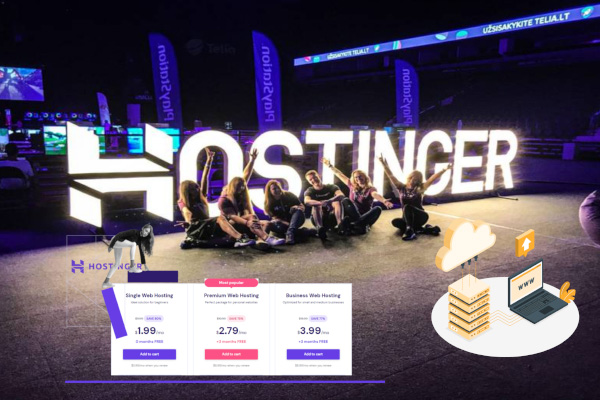Type of Scholarships
In the realm of Japan Government Scholarships, behold seven paths to pursue: Research scholars, Teacher trainees, Undergraduates, Japanese studies enthusiasts, Tech college mavens, Specialized training aficionados, and Young Leaders Program (YLP) aspirants.
Embark on this academic odyssey, one must heed two routes: embassy endorsement or university endorsement. Seek further guidance on the application process for enlightenment.
For Chines Scholarship Click Here
Embassy recommendation
1 )Research students
Applicant ne must be youthful, under 35 springs, and possess a parchment of higher learning, or have traversed the scholarly realms for 16 cycles of education.
2 )Teacher training students
To partake in this scholarly quest, one must be youthful, under 35 turns around the sun, and hold the esteemed title of college or teacher training college graduate. Furthermore, one must possess a treasure trove of pedagogical wisdom, boasting at least five cycles of active teaching experience in the realms of primary, secondary, or teacher training colleges.
Please note, esteemed educators of colleges and universities currently engaged in the noble pursuit of knowledge shall not be considered for this illustrious scholarship.
3) Undergraduate students
On this educational voyage, one must be of tender age, at least 17 but not exceeding 25 summers. Having traversed the corridors of learning for 12 cycles of schooling or have completed courses akin to those of a high school.
4)Japanese studies students
To embark on this academic pilgrimage, one must dwell within the age range of 18 to 30. Navigating the seas of knowledge as an undergraduate student in faculties or schools dedicated to the study of Japanese language or culture, nestled in universities beyond the shores of Japan.
Furthermore, one must remain enrolled in their home institution upon both arrival in Japan and return to their homeland, ensuring the continuity of their educational voyage.
5)College of technology students
Applicant must be between the ages of 17 and 25 and have finished schooling degree to at least high school level. It is typically involves completing a minimum of 11 years of education starting from primary school. This requirement also applies to those who are about to graduate.
6)Specialized training college students
This his academic journey, one must be of tender age, at least 17 summers young yet not exceeding 25 revolutions around the sun. Furthermore, one must possess the accolade of completing 12 cycles of schooling, or demonstrate an educational pedigree akin to that of a Japanese high school graduate. (includes prospective graduates).
More Detail About Embassy Recommendation
University Recommendation
1 )Research students
Masters students must have 16 years education under the age of 35.
Graduate students must have completed 12 years education outside the japan under the ages of 18 and 30. They must be studying in faculties or schools that specialize in Japanese language or Japanese culture.
Additionally, applicants must be enrolled at their home institutions both when they arrive in Japan and when they return to their home countries.
2 ) College of technology students (Recommendation by College of technology)
To be eligible, you must be between the ages of 17 and 25 and have finished schooling equivalent to high school (at least 11 years, starting from primary school). This includes individuals who are currently completing their schooling.
More Detail About University Recommendation
Application Process
Embassy recommendation
In this scholarship category, candidates are sought and first evaluated by a Japanese embassy (or consulate general, depending on the nation). Since the application procedures vary based on the location of the Japanese embassy, kindly reach out to the Japanese embassy or consulate general in your country for specific information
Recruitment for incoming students in Japan for the next April intake typically occurs between April and May. The initial screening process, which includes documentary examination, a written test, and an interview, takes place at the embassy from June to July.
After this stage, the embassy forwards its recommendations for selected candidates to the Japanese Ministry of Education, Culture, Sports, Science and Technology (MEXT) through the Ministry of Foreign Affairs by late August. This process applies to research students, undergraduate students, students from colleges of technology, and students from specialized training colleges.
Prospective teacher training and Japanese studies students who plan to arrive in Japan in September or October should be aware that recruitment typically takes place between December of the previous year and February of the following year.
The screening process usually occurs between February and March. Successful candidates are then recommended to the Japanese Ministry of Education, Culture, Sports, Science and Technology (MEXT) via the Ministry of Foreign Affairs by early April
University Recommendation
In this program where Japanese universities and other educational institutions actively seek scholarship applicants through their student exchange partnerships with overseas schools.
After conducting candidate screenings, universities put forward individuals to the Japanese Ministry of Education, Culture, Sports, Science and Technology (MEXT) as potential recipients..
The programs available under this initiative include opportunities for Research students, Undergraduate students, learners of Japanese language and culture, and students interested in College of Technology programs.
For More Detail Click Here
Scholarships will Cover

(1)The amounts listed below shall be paid depending on the course enrolled in. Because to the situation of the Japanese Government’s budget, the amount of payment may be subject to change each fiscal year.
=> Students receiving the preparatory education and non-regular students: 143,000 yen per month
=> Masters students or professional degree courses: 144,000 yen per month
=> Regular students enrolled in doctoral courses: 145,000 yen per month.
(2)Education fees for the entrance and tuition at universities will be paid by MEXT.
Traveling Expenses will be Cover.
Deadline vary on universities. Intake in Sep/Oct or Mar/Apr








